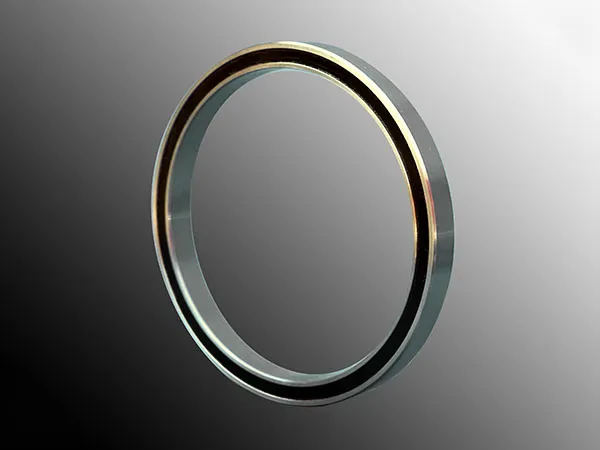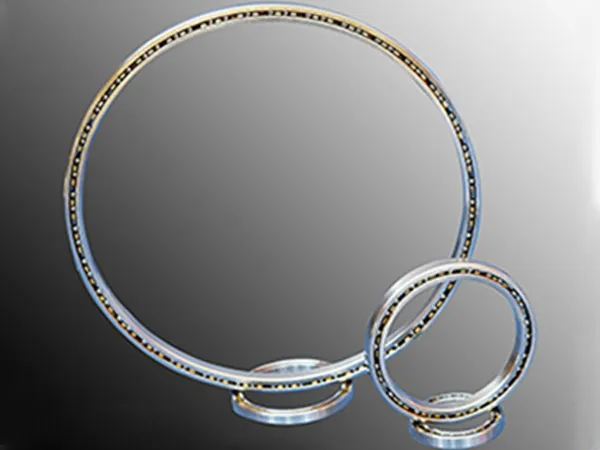Reducing noise in thin section bearings involves addressing potential sources at various stages: bearing selection, installation, lubrication, and operation. Thin section bearings are particularly sensitive due to their high diameter-to-cross-section ratio, making them more flexible and susceptible to distortion.
How to reduce the noise of thin section bearings

Bearing Selection & Design:
Higher Precision Grade: Choose bearings with higher ABEC (Annular Bearing Engineers’ Committee) or ISO (International Organization for Standardization) precision classes. Higher precision means tighter tolerances on raceway geometry, ball sphericity, and surface finish, leading to smoother operation.
Internal Clearance: Select the appropriate internal clearance (C2, C0, C3, etc.). Too much clearance can lead to ball skidding and noise, while too little (or excessive preload) can increase friction, heat, and noise. The correct clearance depends on the application, fit, and operating temperature.
Cage (Retainer) Material & Design:
Polymer Cages: Nylon (polyamide) or PEEK cages can dampen vibrations and run quieter than steel cages, especially at high speeds.
Crown-type or Snap-over Cages: These can sometimes be quieter than ribbon-type cages.
Full Complement (No Cage): While offering higher load capacity, these are generally noisier due to ball-to-ball contact.
Ball Material: Ceramic balls (e.g., Silicon Nitride, Si3N4) are lighter, harder, and smoother than steel balls. This reduces centrifugal forces, wear, friction, and can lead to quieter operation.
Seals and Shields: While primarily for keeping contaminants out and lubricant in, they can offer a slight damping effect. However, rubbing seals can also be a source of noise if not properly designed or lubricated.
Proper Installation & Mounting (CRITICAL for Thin Sections):

Housing and Shaft Geometry:
Roundness & Cylindricity: Thin section bearings conform to the shape of the shaft and housing. Any out-of-roundness or taper in the mating components will distort the bearing rings, leading to uneven load distribution, increased stress, and noise. Use high-precision machining for mating surfaces.
Concentricity & Perpendicularity: Ensure shaft and housing bores are concentric and shoulders are perpendicular to the axis. Misalignment is a major noise contributor.
…
More detailed information about how to reduce the noise of thin section bearings can be found by clicking visit: https://www.lynicebearings.com/a/blog/how-to-reduce-the-noise-of-thin-section-bearings.html

